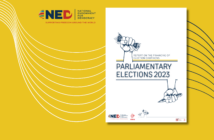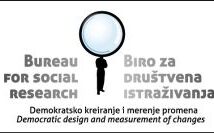Entities in electoral campaign,
spending of public funds, institutional advantage, control and supervision
The aim of this report is to point out issues in financing the campaign for local elections held on October 23, 2022, in 14 municipalities.
First part of the report presents data related to the financing of election campaigns by electoral lists, and the second part provides information on compliance with legal limits on the use of public funds in the pre-election period, in order to reduce the possibility of illegitimate influence on voters.
MANS monitored the election campaign and collected data on the expenses of all confirmed electoral lists that participated in these elections. We got the information through social media, field work and official reports that electoral lists are required to submit to the Agency for Prevention of Corruption (APC). In addition, we monitored paid political advertising on largest TV stations with national frequency, collected their price lists and contracts concluded with electoral lists published on the Agency’s website.
In addition, through the Law on Free Access to Information, we collected data on the spending of state institutions and employment in state-owned companies, as well as information that was proactively published during the election campaign.
An overview of the official revenues and expenses of electoral lists, as well as information on their paid advertising on TV stations with a national frequency is given in first part of this report, and then the official data is analysed and compared with the information collected through monitoring. A series of case studies illustrate the key issues related to the concealing of expenses and their fictitious presentation, as well as the lack of transparency in the financing of the election campaign, especially media advertising.
In second part of the report, spending of the state bodies and institutions of the Capital City during the election campaign was analysed, and data on employment and operations of the largest companies owned by the state and the Capital City, as well as numerous issues in accessing information, are presented. A special chapter is devoted to the use of institutional advantage by public officials during the election campaign. We analysed the practices of the Agency for Prevention of Corruption and presented concrete cases and decisions of that institution that cause serious issues in practice.
The publication of this report was supported by the Embassy of the Swiss
Confederation to the Republic of Serbia and to Montenegro, and the data used for its preparation were collected thanks to the financial support of the National Endowment for Democracy. The views and opinions expressed in this document do not necessarily reflect the views of the donors.
Complete report download HERE (PDF)



